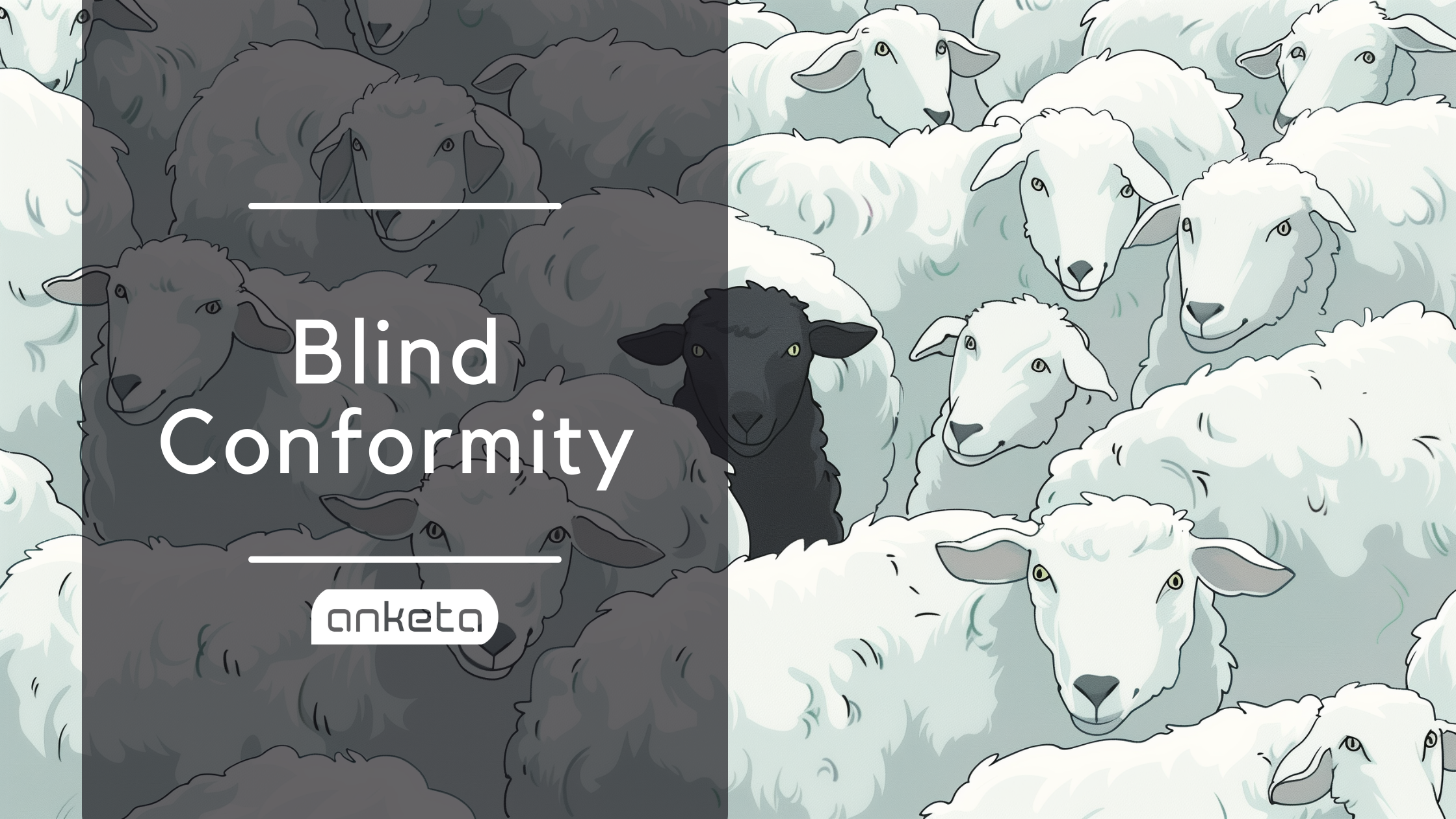This occurs in everyday situations where people might change their behavior, opinions, or appearance to fit in with a group of friends or colleagues, or on a larger scale within society. For example, someone might start dressing a certain way or saying certain things to be accepted by their peers. Similarly, adopting popular political views, participating in widespread social practices, or adhering to cultural traditions without questioning their relevance or fairness are all acts of blind conformity.
Blind conformity often involves suppressing one’s individual thoughts, opinions, and potential for creativity and innovation. The high price of this is the loss of personal identity and the unique contributions one could make to society, whether at large, in a team at work or school, or even within the home, household, and family. When we choose to conform blindly, we miss the opportunity to give back in ways only our unique perspectives can provide, and these contributions are lost forever.
By conforming blindly, people might miss the opportunity to voice ideas that could lead to positive changes and improvements in their surroundings. This phenomenon can stifle progress and perpetuate outdated or unjust practices.
Therefore, it is essential to balance the need for social harmony with the courage to maintain and express one’s individuality.
The roots of blind conformity can be traced to psychological and sociological factors deeply ingrained in human nature. Social psychologist Solomon Asch’s famous conformity experiments in the 1950s demonstrated the power of group influence, revealing how individuals would conform to an incorrect majority opinion simply to fit in. Evolutionary psychologists argue that this inclination toward conformity may have emerged as an adaptive trait, enhancing survival by fostering group cohesion.
The antidotes:
Expression of Individuality:
Blind conformity erodes individuality, stifling the diversity of thought and expression that is essential for societal progress. When individuals surrender their unique perspectives in favor of groupthink, the richness of human creativity and innovation is compromised, leading to a stagnant and homogeneous society.
Nourishing of Critical Thinking:
One of the most insidious dangers of blind conformity is the erosion of critical thinking. When individuals unquestioningly adopt the beliefs and practices of a group, they relinquish their ability to analyze information independently. This lack of critical scrutiny can result in the perpetuation of misinformation, prejudice, and harmful ideologies.
Aware of Unethical Behavior:
History is replete with examples of blind conformity leading to egregious acts of cruelty and injustice. From the atrocities committed during the Holocaust to the horrors of mass cults, blind conformity has been a common denominator. The diffusion of responsibility within a group can mitigate individual accountability, making it easier for individuals to participate in actions they might otherwise find morally reprehensible.
This concept ties into the “banality of evil,”
a phrase coined by philosopher Hannah Arendt in her report on the trial of Adolf Eichmann, a Nazi official who played a key role in the Holocaust. Arendt observed that Eichmann was not a fanatical ideologue but rather an ordinary, unthinking individual who simply followed orders without questioning the morality of his actions. The banality of evil highlights how ordinary people can commit atrocious acts by blindly conforming to authority or societal norms, failing to exercise their own moral judgment. This underscores the importance of maintaining one’s individuality and critical thinking to prevent such passive complicity in harmful action and ideology.
Support to Positive Change:
Societal progress often hinges on the courage of individuals to challenge established norms and advocate for positive change. Blind conformity, however, acts as a formidable barrier to such progress, as individuals fear the repercussions of deviating from the status quo. This resistance to change can impede efforts to address social injustices, promote equality, and tackle pressing global issues.
Anketa plays a crucial role by providing a platform for people to question and discuss ethical or societal norms and decisions. Anketa is a space where diverse opinions co-exist, it is an environment where diverse opinion thrive, where individuality and critical thinking are valued. This empowers our community to speak up and contribute their unique perspectives and drive positive change.
Read also
Intellectuals and students have always supplied our society with the necessary criticism and opposition. Polling helps dismantle stereotypes by revealing the breadth of student opinions on various issues—from campus governance to foreign policy of the country.


